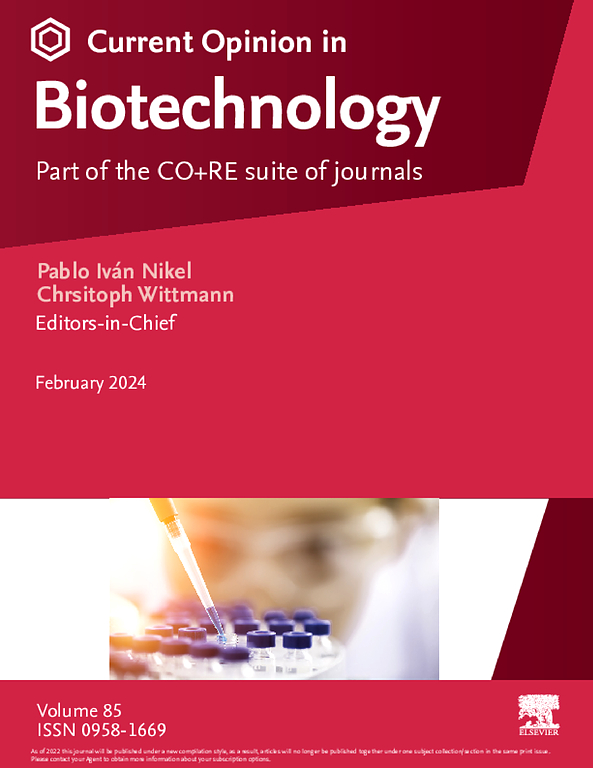Understanding and harnessing the complexity of interspecies interactions in acetogenic mixotrophic co-cultures
IF 7.1
2区 工程技术
Q1 BIOCHEMICAL RESEARCH METHODS
引用次数: 0
Abstract
The core advantage of acetogens lies in their superior carbon management, achieved by engaging the Wood–Ljungdahl pathway to sequester CO₂ in situ and utilize exogenous CO₂. This advantage can be further exploited by coupling acetogens with other organisms in co-culture, leading to the increasingly explored concept of acetogenic co-cultures. We review and dissect schemes involving the co-fermentation of carbohydrates and exogenous gases, which present unique challenges and opportunities due to the nonlinearity of co-culture metabolic networks and complex, often unanticipated, interspecies interactions. The latter suggests that most, if not all, such co-cultures are mutualistic rather than commensalistic, contrary to previous assumptions. We discuss both fundamental and applied concepts, including co-culture stability and methods for quantitatively capturing population dynamics and interspecies interactions.
了解和利用产醋混合营养共培养中种间相互作用的复杂性
二氧化碳的核心优势在于其优越的碳管理,通过Wood-Ljungdahl途径就地封存二氧化碳并利用外源二氧化碳来实现。这一优势可以通过与其他生物在共培养中偶联来进一步利用,从而导致越来越多地探索产氧共培养的概念。我们回顾和分析了碳水化合物和外源气体共发酵的方案,由于共培养代谢网络的非线性和复杂的,通常是意想不到的,种间相互作用,这些方案提出了独特的挑战和机遇。后者表明,与之前的假设相反,大多数(如果不是全部的话)这种共生文化是互惠的,而不是共生的。我们讨论了基本和应用概念,包括共培养稳定性和定量捕获种群动态和种间相互作用的方法。
本文章由计算机程序翻译,如有差异,请以英文原文为准。
求助全文
约1分钟内获得全文
求助全文
来源期刊

Current opinion in biotechnology
工程技术-生化研究方法
CiteScore
16.20
自引率
2.60%
发文量
226
审稿时长
4-8 weeks
期刊介绍:
Current Opinion in Biotechnology (COBIOT) is renowned for publishing authoritative, comprehensive, and systematic reviews. By offering clear and readable syntheses of current advances in biotechnology, COBIOT assists specialists in staying updated on the latest developments in the field. Expert authors annotate the most noteworthy papers from the vast array of information available today, providing readers with valuable insights and saving them time.
As part of the Current Opinion and Research (CO+RE) suite of journals, COBIOT is accompanied by the open-access primary research journal, Current Research in Biotechnology (CRBIOT). Leveraging the editorial excellence, high impact, and global reach of the Current Opinion legacy, CO+RE journals ensure they are widely read resources integral to scientists' workflows.
COBIOT is organized into themed sections, each reviewed once a year. These themes cover various areas of biotechnology, including analytical biotechnology, plant biotechnology, food biotechnology, energy biotechnology, environmental biotechnology, systems biology, nanobiotechnology, tissue, cell, and pathway engineering, chemical biotechnology, and pharmaceutical biotechnology.
 求助内容:
求助内容: 应助结果提醒方式:
应助结果提醒方式:


